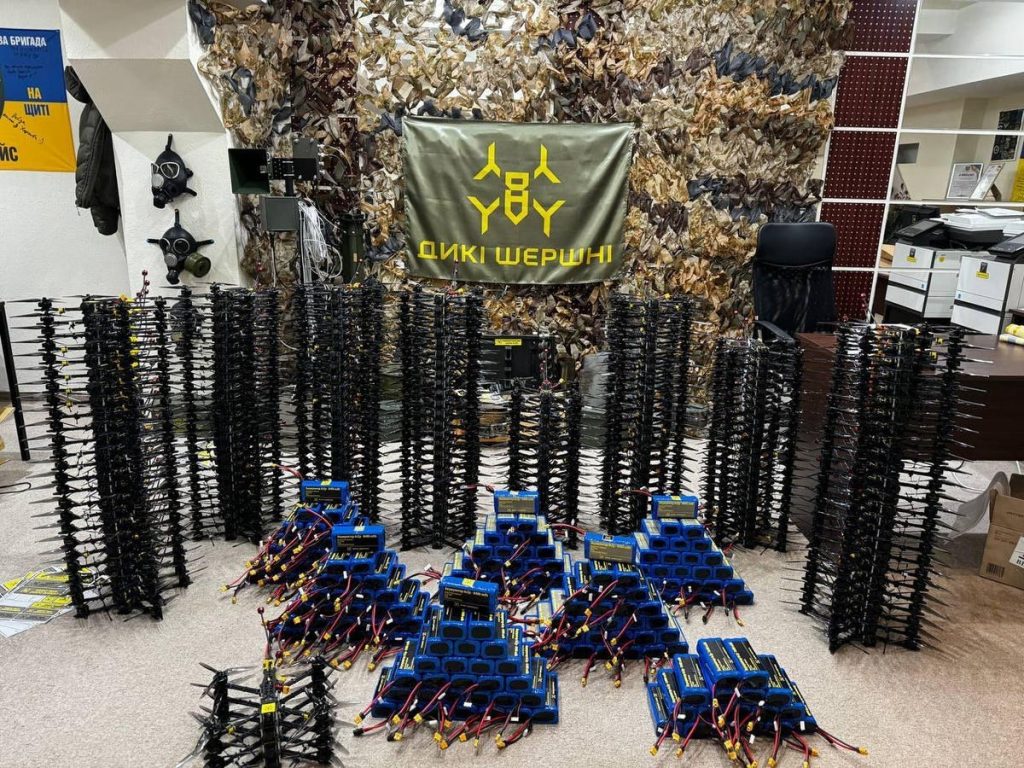Ukrainian President Zelensky has set an ambitious target for Ukraine to build one million drones by 2024, a number that far surpasses typical army drone numbers. The country has already produced 200,000 drones in just the first two months of this year. The majority of these drones are small attack drones assembled by individuals in their spare time, but there are also groups developing new generations of drones for production. Wild Hornets is one such group that is making significant strides in drone technology.
Dmytro Prodanyuk, co-founder of Wild Hornets, spoke with Forbes about their work, the challenges they face, and the future of drone warfare. He expressed confidence in Ukraine’s ability to exceed the one million drone target, with some estimates suggesting that two to three million drones could be produced this year. Funding has been a major challenge for drone makers in Ukraine, but support from donors and increased awareness has helped boost production levels significantly.
Wild Hornets is unique in that it is a nonprofit organization, while most drone makers in Ukraine are private businesses. The company initially had a slow start in 2023, producing just tens of drones per month before ramping up to hundreds and thousands. Their drones have proven to be effective, with soldiers recommending them and donors coming forward to support the project. However, better distribution of state funding for drones could further increase production rates.
Wild Hornets produces a range of drones for different purposes, all priced similarly between $450 and $550. These drones have been effective in causing damage to Russian equipment, destroying tanks, personnel carriers, artillery, and air defense systems. Despite challenges such as radio-frequency jamming, Wild Hornets continues to innovate and improve their drone technology. They are now working on drones with automatic target recognition.
The use of artificial intelligence in drones is seen as the next big development in drone technology. Wild Hornets is actively working in this area, with the first Ukrainian FPV drones with automatic target recognition already being deployed. This technology will make drones immune to jamming and increase their strike rate significantly. Prodanyuk believes that the mass adoption of artificial intelligence in drones could revolutionize the battlefield and change the nature of warfare.
As combat ranges increase and the potential for fully autonomous drones becomes more feasible, the impact of drones on the battlefield is expected to be significant. With Ukraine leading the way in drone warfare, there are high expectations for the future of FPVs in conflict. Prodanyuk believes that mass drone strikes with artificial intelligence capabilities could become a dominant force in future battles, making FPVs a key player on the battlefield.


